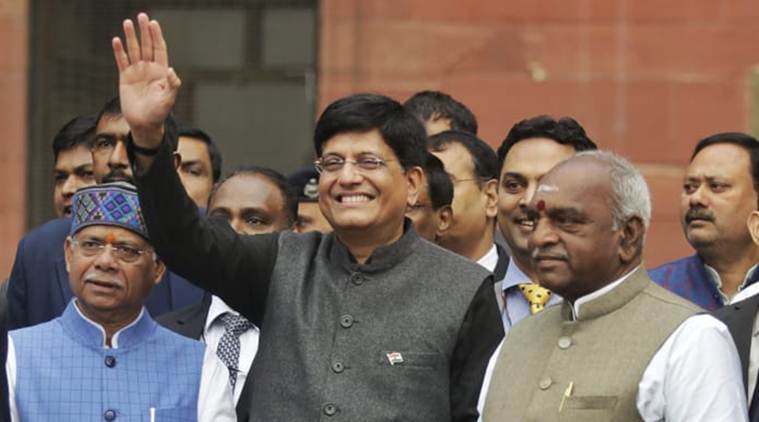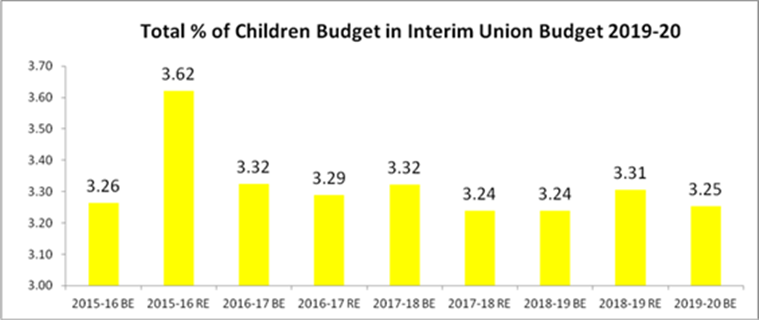By Education Desk |New Delhi |Updated: February 2, 2019 4:49:18 pm
Budget 2019: Why is education sector not happy?
Among major announcements for the sector was establishing an institute for AI, new AIIMS in Haryana and roughly 2 lakh more seats in education institutes across India but decline in the funding of HEFA and indirectly for central institutions along with no visible mention in the speech about the sector has left many disappointed

With an emphasis on youth, acting Finance Minister Piyush Goyal in his Budget 2019 speech said that India is amongst the youngest nations and the government is proud of its youth. There was no major announcement for the education sector, however, there is a minor increase in terms of allocation of funds. Most of which was dedicated to school-level institutes with a boost of 20 per cent funds for the National Education Mission. The total grants for the NEM stand at Rs 38,572 crore.
Among the announcements for the education sector was establishing an institute for Artificial Intelligence (AI), new AIIMS in Haryana and roughly two lakh more seats in education institutes across India. With a decline in funding for the newly constituted Higher Education Funding Agency (HEFA), experts are left disappointed. Here is what they have said:
Decline in HEFA
Dean, research at Indian Institute of Management (IIM) Kozhikode and PhD economics, Rudra Sensarma said, “It is disappointing to see that the funds for the Higher Education Financing Agency (HEFA) has declined. Since the government has established HEFA it has asked the central universities, IITs and IIMs to have loans from the agency instead of having grants. The decline for HEFA is by 24 per cent, this would mean that the institutes will have to look for other sources of income.”
Need more funds for more seats
President, Delhi University Teacher Association (DUTA), Rajib Ray said, “The allocations for the education budget have decreased in the last four years. This sector needs at least a few hundred crores more to expand the infrastructure and available faculty to meet in the demand which will be created by the increase in the number of seats with the coming reservation. In central education institutes alone, there is a void of thousands of faculty and non-teaching staff.”
Start-ups can’t substitute jobs
Dean, Economics, Loyolla College, Chennai, B. Bhagwan Das said, “Education sector needs to be at at least 6 per cent of the GDP. There was not much emphasis or mentions on the education budget. After all, spending on education also means an increase in growth. If the government aims at 8 per cent economic growth, it will have to increase the spending on education. India is ranked much lower than its neighbours in the human development index (HDI) which is an indicator of the social sector, especially education, employment etc. Start-ups cannot be an ensured mode of education for educated youth.”

Nothing for the young
“For almost 40 per cent of India’s population comprising of its children, the budget failed to address the expectations of the nation, as children were neither a part of the budget speech nor were they visible anywhere in the 10 point vision for 2030. Overall budget outlay for children is just 3.25 per cent of the total union budget, with a negligible 0.01 per cent increase since last financial year. In gross terms it records an increase of Rs 9,358 crores, however, it is welcoming that some areas such as the National Nutrition Mission (NNM) has got an increased boost of 410 crores and Integrated Child Development Scheme (ICDS) witnessed an increase of Rs 4,227 crores. We hope that the huge vacancy gap in Angawadis, as well as. universalised coverage of ICDS services for children under six years sees a visible improvement with this additional budgetary allocation,” said Puja Marwaha, CEO at CRY – Child Rights and You.









.png)




























No hay comentarios:
Publicar un comentario